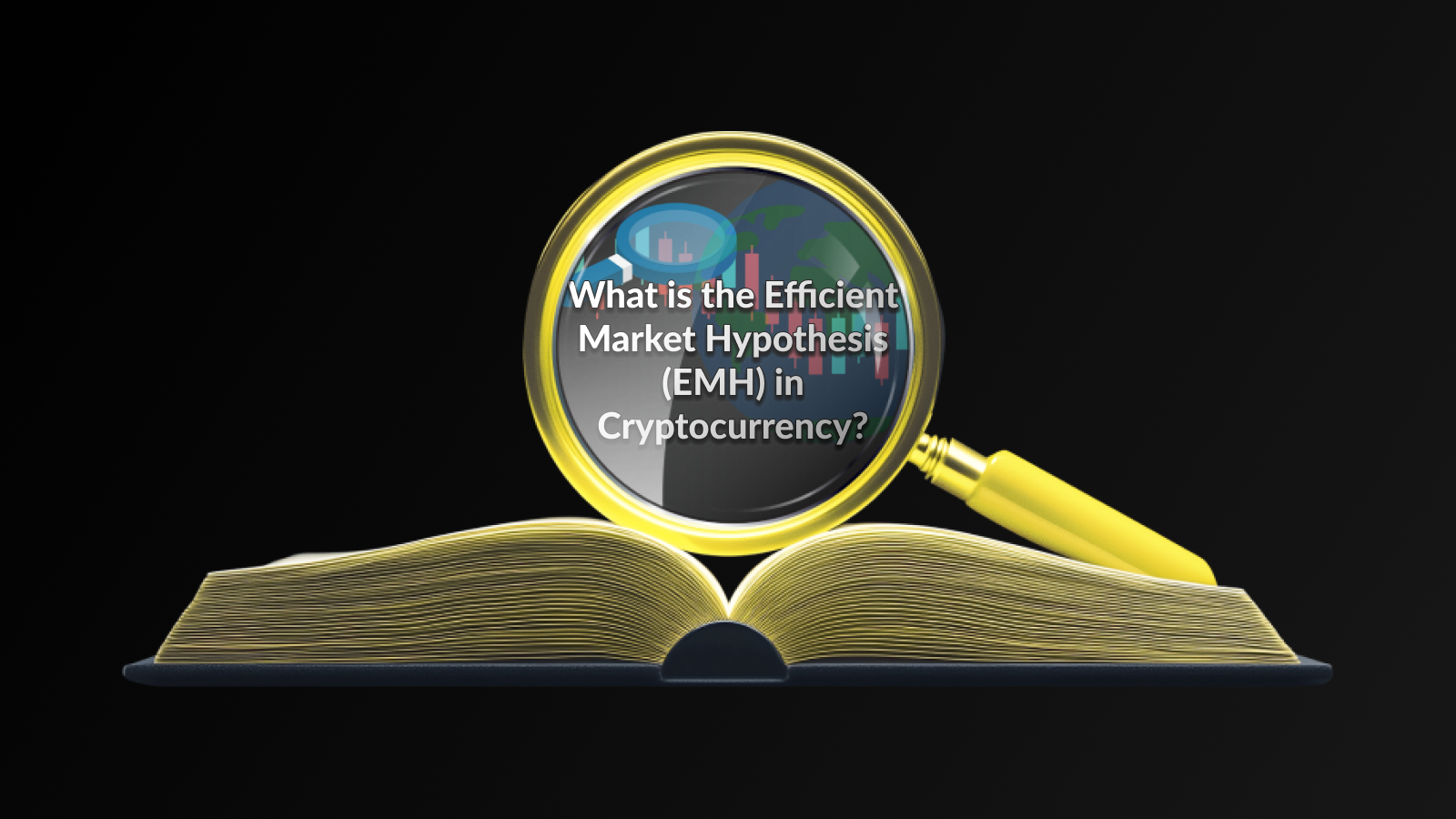Introduction
The Market Hypothesis (EMH) in Cryptocurrency posits that financial markets are informationally efficient, meaning that asset prices reflect all available information at any given time. This concept, developed in traditional finance, raises questions about how well it applies to the highly volatile and relatively nascent cryptocurrency market. In theory, if EMH holds true, it would imply that it is impossible to consistently achieve higher returns than average market returns on a risk-adjusted basis, as prices already incorporate all relevant data, including news and trends that could influence investor behavior.
However, the unique characteristics of cryptocurrencies, such as their decentralized nature, high volatility, and active participation from both retail and institutional investors, introduce complexities that challenge the traditional understanding of EMH. Investors must navigate a landscape where information dissemination and market sentiment can shift rapidly, influencing price movements in unexpected ways.
A critical exploration of the Market Hypothesis (EMH) in Cryptocurrency reveals both its theoretical foundations and practical implications, urging traders and investors to reassess their strategies in light of market behavior and information efficiency.
How Does the Efficient Market Hypothesis Apply to Cryptocurrencies?
The Market Hypothesis (EMH) in Cryptocurrency suggests that asset prices reflect all available information. In the context of cryptocurrencies, this means that the current price of a coin encompasses all existing knowledge about its potential performance, making it challenging for investors to achieve returns greater than the average market return after adjusting for risk.
Cryptocurrencies are known for their high volatility and rapid price swings, but the Market Hypothesis (EMH) in Cryptocurrency posits that even with these fluctuations, price movements are influenced by new information just as they are in traditional financial markets. As markets become more efficient over time, it becomes increasingly difficult for investors to identify mispriced assets.
In an efficient market, the role of speculation diminishes, and price changes are largely attributable to the arrival of new data. For cryptocurrency investors, understanding how the Market Hypothesis (EMH) in Cryptocurrency operates can guide their decision-making process and prompt them to critically assess their trading strategies.
Furthermore, the global nature of cryptocurrency markets adds another layer of complexity. As information disseminates at lightning speed across various platforms and geographies, the Market Hypothesis (EMH) in Cryptocurrency indicates that opportunities for arbitrage may diminish quickly, resulting in market prices adjusting almost instantaneously to reflect news or events.
While some argue that cryptocurrencies are prone to irrational behavior and market inefficiencies, the principles of the Market Hypothesis (EMH) in Cryptocurrency provide a framework for understanding the dynamics of price formation within this evolving digital asset landscape.
Can You Beat the Market in Crypto?
In the realm of cryptocurrencies, the question of whether one can successfully beat the market has garnered significant attention. The Market Hypothesis (EMH) in Cryptocurrency suggests that it is impossible to consistently achieve higher returns than the overall market since asset prices already reflect all available information. However, the volatility and nascent nature of the crypto market pose unique challenges and opportunities for traders and investors alike.
Proponents of the EMH argue that with the bearish swings and bullish trends that characterize cryptocurrency trading, any attempt to predict short-term price movements is akin to gambling. The rapid influx of information and the inherent unpredictability of crypto can lead to abrupt market shifts, making it seem like an advantageous environment for those who can capitalize on such changes.
Nonetheless, many experienced traders claim to have developed strategies that enable them to beat the market, albeit not without considerable risks. These strategies often involve advanced technical analysis, sentiment analysis, and the assessment of on-chain metrics, all aimed at gaining an edge over the market’s pricing mechanisms.
While the Market Hypothesis (EMH) in Cryptocurrency posits that outperforming the market is fundamentally a losing battle, the dynamic landscape of crypto trading continues to attract those willing to navigate its complexities in pursuit of substantial gains. With persistence and a well-researched strategy, some investors may indeed find ways to achieve above-average returns, but it requires an acute awareness of the inherent risks involved.
How Does EMH Influence Investment Strategies in Crypto?
The Market Hypothesis (EMH) in Cryptocurrency plays a crucial role in shaping how investors approach their decision-making and portfolio management. If the market is indeed efficient, it suggests that all available information is reflected in cryptocurrency prices. Consequently, investors may find it challenging to outperform the market consistently.
As a result, many investors adopt passive investment strategies, such as index investing, which involves purchasing diversified portfolios that reflect the overall market. This approach minimizes costs and time spent on research, aligning well with the principles of the Market Hypothesis (EMH) in Cryptocurrency.
On the other hand, some investors still believe that through sophisticated analysis and trading strategies, they can identify mispriced assets, especially in the volatile crypto market. However, the effectiveness of these strategies is often questionable, as price adjustments can happen rapidly, diminishing any potential advantages.
Moreover, the EMH’s implications encourage investors to focus on long-term gains rather than short-term speculation. By understanding that short-term price movements are largely random, this perspective helps to reduce impulsive trading behaviors influenced by market noise.
The influence of the Market Hypothesis (EMH) in Cryptocurrency compels investors to reconsider their methods, often leading them towards more passive and diversified investment strategies that comply with the market’s efficient nature.
Frequently Asked Questions
What is the Efficient Market Hypothesis (EMH)?
The Efficient Market Hypothesis (EMH) is a financial theory that asserts that asset prices fully reflect all available information at any given time. It suggests that in an efficient market, it is impossible to consistently achieve higher returns than average market returns on a risk-adjusted basis.
How does EMH apply to cryptocurrency markets?
EMH applies to cryptocurrency markets by suggesting that prices of cryptocurrencies already reflect all known information, making it difficult for investors to exploit price discrepancies for profit. However, the level of efficiency in these markets can vary significantly due to factors such as market maturity and information asymmetry.
What are the three forms of EMH?
The three forms of EMH are: 1) Weak form EMH, which posits that all past market prices are reflected in current prices; 2) Semi-strong form EMH, which states that all publicly available information is incorporated into asset prices; and 3) Strong form EMH, which asserts that all information, both public and private, is reflected in prices.
Can investors profit in an efficient market?
In an efficient market, it is exceedingly difficult for investors to consistently achieve returns that outperform average market returns, as any new information is quickly incorporated into prices. However, some investors may still profit through strategies involving risk management or investing in undervalued assets in less efficient markets.
What factors can affect the efficiency of cryptocurrency markets?
Factors affecting the efficiency of cryptocurrency markets include price volatility, regulatory changes, market manipulation, information dissemination practices, technological advancements, and the overall maturity of the market itself.
Are there any criticisms of the EMH as it relates to cryptocurrencies?
Yes, critics argue that cryptocurrency markets exhibit irrational behaviors, high volatility, and speculative bubbles, which challenge the notion of market efficiency. They suggest that emotional trading and external factors often lead to price movements that do not reflect fundamental values.
How can understanding EMH benefit cryptocurrency investors?
Understanding EMH can help cryptocurrency investors manage their expectations regarding market performance, recognize the importance of thorough research, and avoid falling prey to common pitfalls such as impulsive trading based on rumors or hype.
Disclaimer
This article is for informational purposes only and does not constitute financial or investment advice. Cryptocurrency investments are subject to risks, including market volatility and regulatory changes. Always conduct your own research (DYOR) and consult a licensed professional before making investment decisions. Darkex does not guarantee the accuracy of the information provided.
Click for more Darkex educational articles.





